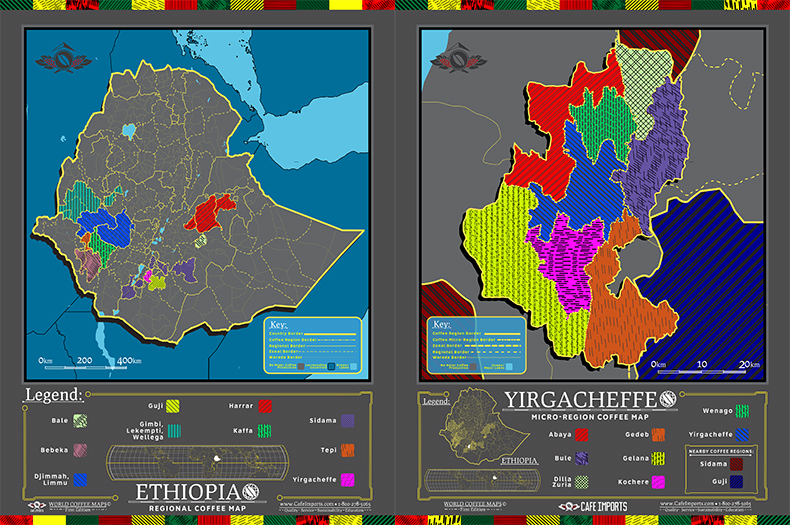So here's a little thread about a rabbit hole I went down a few years ago as I was attempting to figure out a history of various coffee preparation methods and kinda upended what I assumed was a hard fact: that Ethiopia has an ancient and sacred relationship with coffee.
It seems like it should be self-evident, right? Consider the following facts:
1) Ethiopia is an ancient nation-state, roughly on par with Egypt and China for its origins as a political entity.
2) Coffea Arabica is biologically from Ethiopia, with hundreds of varieties growing in the wild in the country's southwest
2) Coffea Arabica is biologically from Ethiopia, with hundreds of varieties growing in the wild in the country's southwest
3) There is a known highly stylized and formalized and ceremonial form of drinking coffee in Ethiopia, where the beans go from milling to brewing in about an hour with important ritualized steps
You can then surmise that Coffee is to Ethiopia as Tea is to China, right? The Jebena is Ethiopia's Gaiwan and is a brewing device with thousands of years of history, right? Nope!
The thing that made me learn this was a single throwaway sentence in an article I read, which was that the Ethiopian Orthodox Church had banned coffee drinking in the country for hundreds of years, only relenting and allowing adherents to drink coffee in 1880
1880! Coffee drinking in Ethiopia is younger than the state of Colorado! As per usual when learning about these things, the reason for this was about a change in power
Prior to 1880, the Ethiopian empire had been centered around what are now the Amharic speaking northwestern highlands of the country.
The borders fluctuated and the capital city changed at several points, but a good reference point is that the empire almost always had at its center Lake Tana, the origin point of the Blue Nile river. https://en.wikipedia.org/wiki/Lake_Tana
So consider the area surrounding Lake Tana as ancient Ethiopia, and then look at this map of where coffee cultivation happens in Ethiopia:
Effectively, while Ethiopia is an ancient nation-state, its ancient borders do not include what are now the coffee growing regions of the country.
In 1880, Emperor Menelik II (himself a fascinating dude, for example giving himself the regal name of "Menelik II" is a ballsy move, it's effectively like an English king giving himself the regal name "Arthur II"), took over vast swaths of territory in his reign
He effectively established Ethiopia's borders as we know them today, taking over so much territory that he turned Ethiopia from a majority Amharic speaking nation to a 30% Amharic speaking nation.
Among the peoples conquered during Menelik's rule was a vast swath of peoples of varying ethnicities, comprising about a quarter of Ethiopia's current population and an astonishing 70+ different languages, today known as the Southern Nations, Nationalities and Peoples region.
Among these regions were where coffee grew wild and was cultivated. Because of his new control of the region Menelik II took up drinking coffee, and from this the church relented and lifted their ban
It's bananas to think about the fact that coffee drinking has more of a history in the US than it does in Ethiopia, but it's ultimately the case. Wild, huh?
Now of course that is not to say that the Oromo people who most certainly spread coffee cultivation during their great migratory period in the 16th century into the holy city of Harar, and from there across the gulf of Aden to Yemen don't have a profound long history with coffee
As of course do many other peoples in what is now southwestern Ethiopia in the SNNP region, most notably the people of the ancient kingdom of Kaffa, from which coffee almost assuredly ultimately gets its name in English.
But for much of Ethiopian history coffee was something wholly foreign to them, despite its origins right in their backyard.

 Read on Twitter
Read on Twitter


